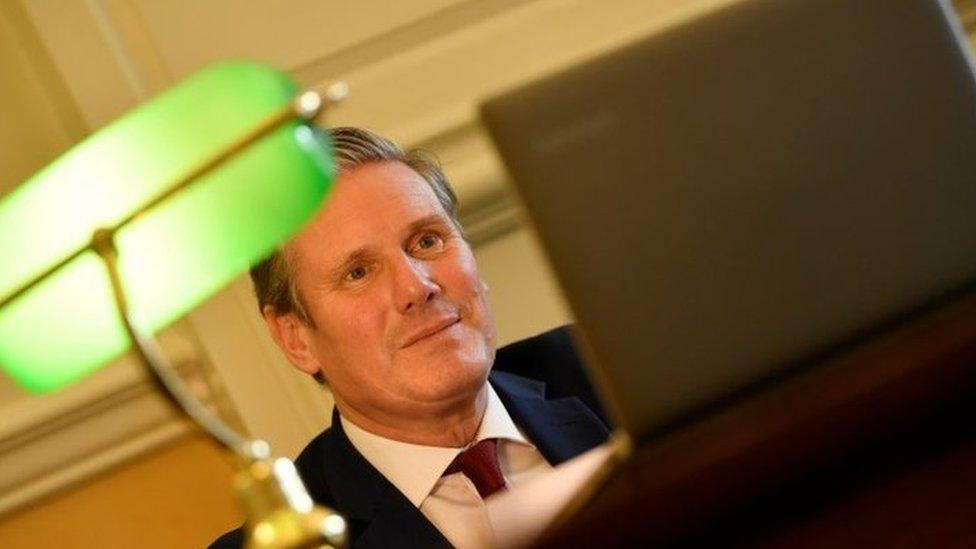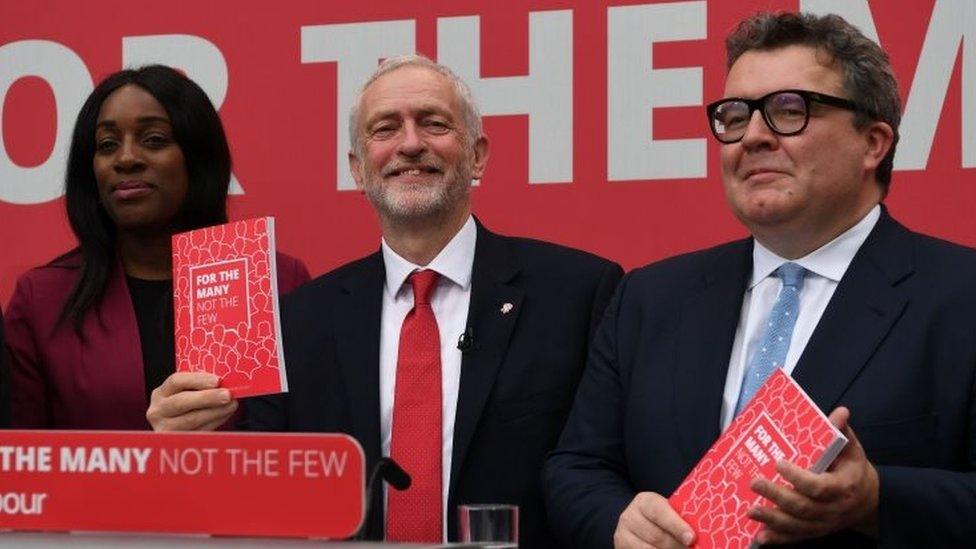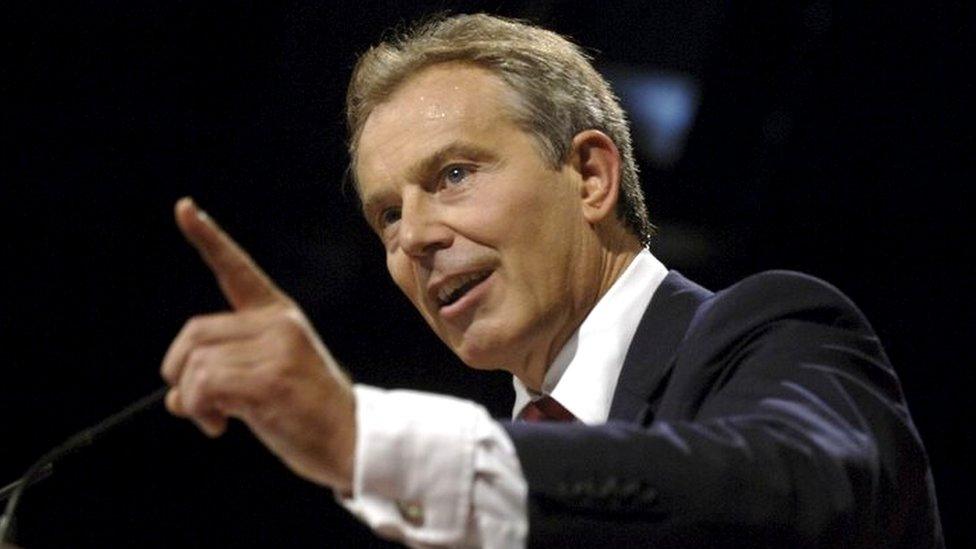Labour Party: Starmer moves to rein in shadow cabinet spending plans
- Published

Sir Keir Starmer is taking a cautious approach to party reforms
A leaked letter from Labour's new shadow chief secretary to the Treasury reveals how Sir Keir Starmer is trying to stamp his authority on his top team.
On the surface, relative calm.
Sir Keir Starmer talks of a '"national consensus" on Covid-19 with the government - and he was elected Labour leader on a "unity" platform within his party.
But look deeper - and he has already begun to change the party he leads.
Already, he has secured the departure of Jennie Formby - appointed as the party's most senior official under his predecessor Jeremy Corbyn.
And he has installed Bridget Phillipson as shadow chief secretary to the Treasury.

Bridget Phillipson is sending a message to shadow cabinet colleagues
'Alice in Wonderland'
This is what Ms Phillipson said in the left-wing journal New Statesman, external about a recent Labour manifesto: 'It was a nod to every stakeholder and lobbyist, as if the Clause V meeting (of trade unionists and shadow ministers who approve the manifesto) was like the caucus-race in Alice in Wonderland where all must have prizes.
".. if (US strategist and Ed Miliband adviser) David Axelrod thought our offer in 2015 was too much like "vote Labour and get a microwave", then a whole kitchen's worth of appliances was on offer this time."
Her comments were not directed at the 2019 manifesto - but the 2017 document which Jeremy Corbyn suggested had made a fundamental contribution to Labour's increased vote share.
So she has long been an advocate not just for fiscal discipline but for ensuring that policies fit together and give a sense of the party's overall direction, rather than appearing like a series of unrelated offers.
And in the letter - seen by the BBC - that she has sent to her frontbench colleagues, she chides anyone who might be tempted to take a different approach.

Labour's 2017 manifesto was seen by the leadership as popular with voters
Achievable road map
Ms Phillipson stresses from the outset that the "credibility of our policy programme will not be determined by ..the popularity of individual policies".
And any "policy costings" should be able to withstand public and media scrutiny.
Now, some of those who served under Jeremy Corbyn will say "no change there - our manifestos were fully-costed".
But there was widespread frustration amongst some on the Left of the party that new pledges appeared to "pop up" outside of the manifesto during the 2019 campaign -such as the multi-billion pound pledge to help "waspi women," who had been adversely affected by pension changes.
And Keir Starmer himself has been critical of the sheer volume of policies crammed in to the 2019 manifesto without preparing the ground over time with the electorate.
So the Phillipson letter, in effect, says "never again - that won't happen on my watch".
That doesn't mean that policies won't be radical but they will have to contribute to "an achievable road map" of where Labour wants to take the country.
And that means there can't be too many routes on that map, and they cannot go off in all directions.
Central control
The letter also makes clear that policy ideas that might require spending -or tax rises - have to be run past the shadow Treasury team and the Leader of the Opposition's office (LOTO) "long before any planned intervention".
This is an attempt not just to impose fiscal discipline but message discipline, too - that the front bench under Starmer may speak in very different accents, but should speak with one voice.

Tony Blair chose to take on his own party publicly
Even where circumstances demand a quick policy response this too should be run past the shadow chief secretary and LOTO.
Calls for "reviews" and changes in regulations are likely to be signed off, but not spending commitments.
Proceeding with caution
The letter also reveals a caution at the heart of the Starmer project.
Behind in the polls, he has not gone for "quick wins" against his Conservative opponents - he recognises Labour faces a long haul in Opposition and that the trust of former supporters will have to earned.
But what is striking is that when the government - by necessity if not by design - has had to hothouse the "magic money tree" and pay the wages of nearly a quarter of the UK's employees, the advice to shadow ministers is: "Resist temptation."
Ms Phillipson's letter warns that any spending commitments Labour makes amidst a crisis could have financial implications for years to come - and could be used by the Conservatives in calmer times to suggest that Labour can't be trusted with the economy.
So, beneath the surface, a shift is taking place.
While no existing policy has yet been junked, when "priorities" for the next manifesto are decided, then some will be sent in to grass that isn't so much long as gigantic.
In opposition, Tony Blair chose very publicly to take on some on his own party - the better to boost his own leadership credentials.
Keir Starmer appears to prefer change to happen more subtly - but it is a shift in substance nonetheless.